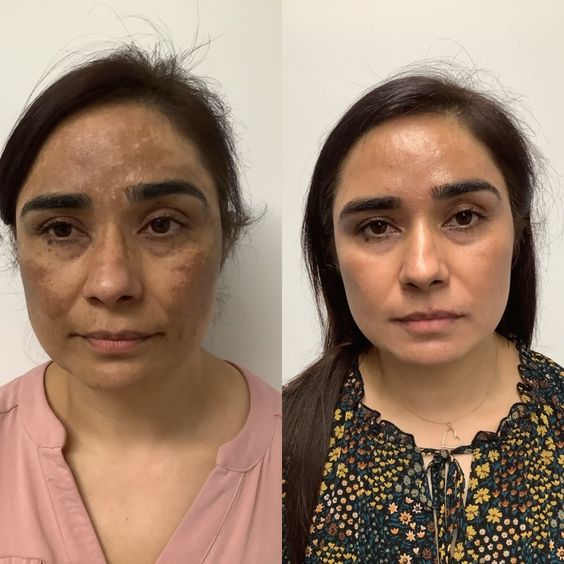Pigmentation, also known as hyperpigmentation, is a common skin condition characterized by patches of darker skin. It can be caused by various factors, including sun exposure, hormonal changes, inflammation, and certain medications. Laser treatment is a popular and effective option for addressing pigmentation concerns.
Understanding Pigmentation:
Pigmentation occurs when excess melanin, the pigment that gives skin its color, accumulates in certain areas. This can lead to dark spots, patches, or discoloration.
Types of Pigmentation:
- Age spots: Dark spots that appear on the skin as a result of sun damage.
- Sunspots: Similar to age spots, sunspots are caused by excessive sun exposure.
- Freckles: Small, flat, brown spots often found on the face and arms.
- Melasma: A condition that causes brown patches on the face, often triggered by hormonal changes or sun exposure.
- Post-inflammatory hyperpigmentation (PIH): Dark spots that occur after an injury, inflammation, or acne.
Benefits of Laser Treatment for Pigmentation:
- Effectiveness: laser treatment for pigmentation can significantly reduce the appearance of pigmentation, resulting in a more even skin tone.
- Precision: Lasers can target specific areas of pigmentation, minimizing damage to surrounding skin.
- Minimal Downtime: Many laser treatments require minimal downtime, allowing you to resume your normal activities quickly.
- Long-lasting Results: The results of laser treatment can be long-lasting, providing lasting benefits for your skin.
Types of Laser Treatment for Pigmentation:
- Q-switched Nd:YAG laser: Effective for treating age spots, sunspots, and freckles.
- Fractional laser: Can be used to treat a wider range of pigmentation issues, including melasma and scars.
- Intense Pulsed Light (IPL): A non-laser treatment that uses broad-spectrum light to target pigmentation.
Choosing the Right Laser Treatment:
The best laser treatment for you will depend on your specific skin condition and goals. Consult with a qualified dermatologist to determine the most appropriate option.
Factors to Consider:
- Skin Type: Your skin tone and sensitivity can influence the choice of laser treatment.
- Pigmentation Type: Different laser treatments are more effective for specific types of pigmentation.
- Severity of Pigmentation: The severity of your pigmentation will determine the number of treatment sessions required.
Laser treatment is a safe and effective option for addressing pigmentation concerns. By consulting with a qualified dermatologist and following the recommended treatment plan, you can achieve a more even and radiant complexion.



